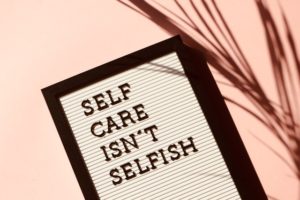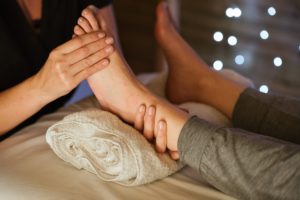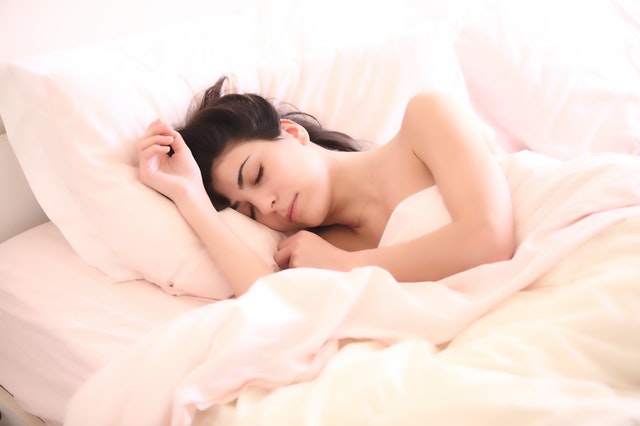Acts of self-care are often associated with conscious results. They focus on things that are felt, thought, and experienced in the waking portion of the day.
However, there’s another aspect of self-care benefits that often goes unnoticed: sleep. Here are a few of the different ways that massages and other self-care measures can improve your waking and sleeping hours.
Self-Care Helps You Focus on Your Basic Needs

As the self-care movement has grown in popularity, it has suffered from misrepresentation at times. The idea of “self-care” has often been warped into a stereotyped need to buy things selfishly on the spur of the moment.
Self-care should aim to address the necessities of life. As such, it should never focus on splurging or gorging.
In other words, genuine self-care should first and foremost identify with basic needs rather than superfluous ones.
For example, the need for self-care often comes from a realization of feeling overwhelmed and burned out. The appropriate response to this feeling is to withdraw and address one’s essential requirements for a bit. These typically revolve around avoiding too much unhealthy food or unnecessary caffeine, exercising, resting, taking a shower, and generally getting “off the clock” for a bit.
Interestingly, both these and other self-care factors also happen to be closely associated with getting a better night’s sleep. This is because sleep, in and of itself, is a basic need. It ranks right, and things like a healthy diet and exercise as an instrumental part of a well-balanced lifestyle.
This cross-over — consisting of both sleep is a basic need and proper self-care addressing basic needs — naturally lends itself to the concept that self-care improves one’s sleep quality.
Self-Care Helps You Physically Relax

From a physical perspective, self-care can do wonders in helping the body relax and calm down. For example, if you get a massage to help your body unwind, you aren’t just calming muscles and releasing tension.
A massage is a medication-free way to boost both serotonin and melatonin levels. These critical mood-stabilizing hormones are well-known for their role in establishing the body’s circadian rhythm. This consequentially promotes better sleep.
Another everyday self-care activity is getting some exercise. When done earlier in the day (if you exercise too close to the bed, it can wake you up and make it difficult to sleep), following a self-care fitness regimen can also help your slumberous rest. Exercise is well known as a stress-reducer, thanks to its ability to help the body release endorphins. This helps to alleviate stress, relaxing the body and ultimately helping you sleep better.
Connections like these make self-care a critical step between the trials of life and getting adequate sleep.
If you work in a toxic work environment, you may find yourself suffering from various physical ailments, such as muscle aches, high blood pressure, and general fatigue. If this is the case, many of these struggles can get in the way of a good night’s sleep.
However, engaging in relaxing self-care activities, such as going for a walk outside or taking a bath, can help. They shepherd an individual from their workspace’s wound-up feeling into a calm, tranquil, sleep-inducing state before they go to bed.
Self-Care Can Reduce Mental Clutter

Many self-care activities like massage, unplugging, and decluttering all focus on reducing stress and calming an overactive mind. Freeing up the mind to be present and unconcerned about the past or future can positively impact your sleep quality.
Sleep is a powerful self-care tool that can help you address many of the driving aggravators in life. For instance, sleep is a crucial first step in defeating the nasty cycle of living with chronic pain and depression.
Using Self-Care to Promote Better Sleep
There are many ways that self-care can help with sleep. Everyday self-care activities like massages and exercise can release essential hormones and help you relax — body, mind, and soul — before sleeping.
While there are undoubtedly many self-care options that don’t specifically speak to the need to sleep, it’s wise to weave sleep-prone activities into your self-care routines as well purposefully. Try to plan them toward the end, mainly so that you can end your time focused on yourself in as sleep-positive a state of mind as possible.


